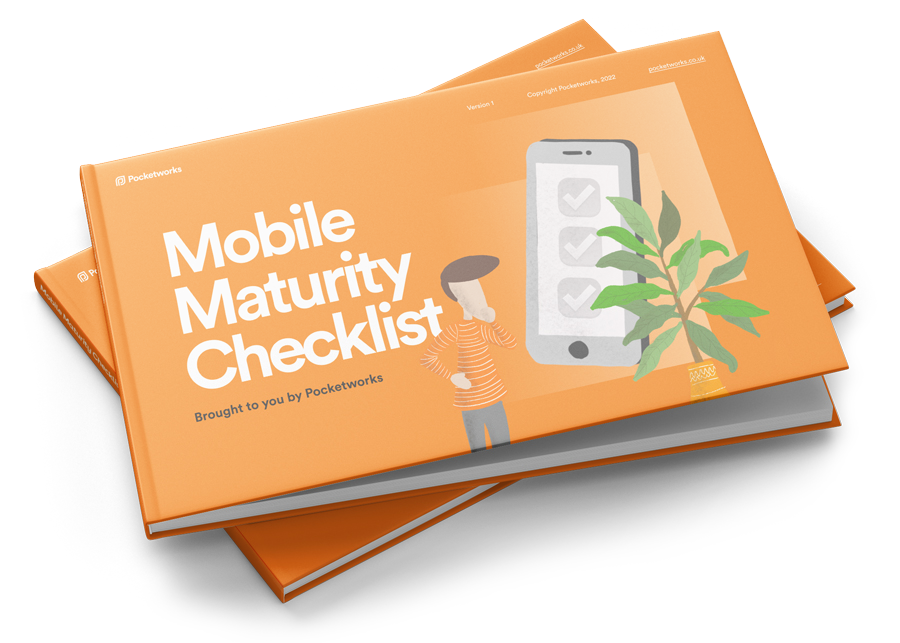Photo by Pascal van de Vendel on Unsplash
If you're a startup founder developing an app, you'll have the difficult task of finding and managing an app development partner to build your idea. This article shares some of my experience and will hopefully let you spot problems ahead of time, or deal with them when they arise.
The reason I put this together is that I work with quite a few startup founders who are looking for a new development partner because things have gone wrong.
Let's look at the key problems I hear from startup founders, along with options to fix them.
Why is my app is massively late?
"We're tearing our hair out because the app has taken much longer than expected and there's no end it sight"
You had a 12-week plan to develop and launch your MVP or Beta version. Now it's week 30 and still going on. What happened!? The weekly meetings aren't helping; you just hear about more delays and find more bugs. That TestFlight build you were promised was 4 days late, and when it did arrive it had more bugs than the last one.
Sound familiar?
Well, this is a really common problem.
There are millions of reasons and factors that make software projects run late. But here's the top 3 that affect founders in my experience.
- Mismanaged communications
- The estimate was too optimistic
- You didn't get good planning advice
Reason 1: Mismanaged communications
Question. If a project is running late, but everyone knows this in advance and understands and accepts the situation, is it still a problem?
You'll probably say "yes". But this is situation is better than being constantly in the dark and disappointed.
Humans seem to get most upset when expectations are broken. So you need to establish a relationship with an app developer where your expectations are well managed, the communications and transparent and timely, and you feel in control.
How to prevent
When building a team, the general rule is that hiring is 90% cultural fit and 10% skill. Apply this rule when hiring an app development firm. Meet the leadership team and the people doing the work. Spend time getting to know them. Make sure the communication and work ethic is at a standard you can accept. It is far more likely that communications will be good and expectations clearly set.
Another option is to do a small trial engagement. Ask the developer if they have any offerings you'd find valuable in the £1,000-£5,000 range so you can test working together.
How to fix
If your app developer is repeatedly setting expectations and then breaking them, you need to consider changing suppliers. Explain that it's not acceptable. You'd rather have bad news than fake news. Changing suppliers can be incredibly painful to do, but you have to think about the long-term and the bigger picture. It's harder to get customers and future backing if you've not pulled a team together that can deliver.
Reason 2: The estimate was too optimistic
You need an estimate of time and cost so you can plan your startup launch and work within your budget.
When you explain your idea, developers have to work out a plan to create the app and give you an estimate of what this will cost. Often they'll charge to do a lot of groundwork to help figure this out.
And yes, still they get it wrong.
The horrible truth known to all industry insiders is that estimating software projects is an impossible thing to do well. Even for seasoned experts such as IBM or agile software guru Kent Beck.
So, it's not surprising you were given a bad estimate. But there are things that can be done.
How to prevent
Looking at historical performance is your best option. Ask the app developer for real data from a similar project they did. Speak to references to validate the estimated timeline.
Ask the developer if anything significant has changed since that project was done. E.g. is it the same team? How many projects will run in tandem with yours? Is there anything that could affect the estimate?
Delays are often due to crossed streams when working. Agree to a way of working and make sure that it fits with your weekly commitments. And most importantly, ensure everyone knows their responsibilities.
These three tips are sound trivial, but they can make a massive difference.
How to fix
It's too late. The best thing to do now is to up your estimating game. That means using data and observing how quickly things are getting done (e.g. one feature a week) and then forecasting how much is left.
Put another way, let's say your a restaurant and your hire Bespoke Cakes Ltd to make 200 individually bespoke cakes. They say it will take ten weeks. On average, this means they'll need to make 20 cakes a week. After two weeks, you observe they are making roughly ten cakes a week. What do you do? Hope for the best? Nope. The right thing to do is to use that data to forecast. In this case, your new forecast should be 20 weeks, which is twice as long as they told you.
The main thing is you're using data rather than promises, so you'll get better estimates. Your app developer could use similar forecasting techniques to give you better estimates of when things will be done.
Reason 3: You didn't get good planning advice
Your poor plan can double the time it takes to make an app. If you're a non-technical founder who's new to building apps, it's difficult to know what constitutes good advice and a good plan.
How to prevent
If you're working with an experienced team of app developers, you should be given pretty sensible planning advice.
Look out for advice like this:
- "We have quality assurance people that will test the app for you."
You can't give a buggy app to your customers. And testing an app properly takes time. So you want to hear them talk about quality practices because it means that there is some degree of quality. - "We test as we go, not just at the end."
It's better if your developer tests as you go because it means that bugs are caught as they are created, and therefore developers can fix them whilst a feature is still fresh in their minds. This saves time. Over the course of the development, this could save a lot of time. - "We'll focus on one platform first, such as iPhone."
It's much quicker to build and test an app on one platform first and do the second platform once the design and features have started to settle. This way, if you need to make changes, you're not doing it twice, which takes more time. - "We think you're scope is too big."
Most founders plan to build too much. They don't realise how long apps take, and app developers are often too optimistic about timeframes (us included). You want an app developer who encourages you to develop a smaller app and who pushes back. This way, you'll get something to market faster. - "You'll get working software every week or two."
I can't emphasise the importance of this enough. Every week or so, you should have something in your hands that a customer can use. This is the only measure of real progress. Most projects are 90% done 50% of the time, meaning everything is almost done. You think you're almost there only to find out you're really nowhere near. Make sure stuff is finished from the very first week or two.
So, in a nutshell, some widely accepted good advice is:
- Have your developer create tiny increments of your app and make sure each one is customer-ready. Avoid "everything started, nothing is done".
- Make sure you get a drop of the app and can run it on your phone at least every two weeks.
- Try to reduce your scope down to 2-3 features max; you can always increase it later.
- Look out for quality practices. Is there a tester on the team? Will they test often?
- Don't build on iOS and Droid at the same time. Instead, stagger it or do one after the other.
How to fix
If you're not getting good advice, it may simply be that your supplier isn't quite as experienced as you'd like. The fastest solution is to bring in some outside expert help and have them work with you and your supplier to make sure the planning and execution are sound.
If you're not sure how to find help, drop me a line, and I can see if there is anyone in my network (or even if it's something I can help with).
Key takeaways
- Spend a good chunk of time getting to know your potential app developer. It's going to be a long partnership. Ditch them quickly if you are continually let down; it seldom improves over time.
- When you get an estimate, ask questions to validate it and for actual data from previous apps.
- Observe how quickly things are moving, and use that to forecast how long something will take. Don't just rely on promises.
- Check the advice you get against the good-practices list above
- Pull in outside help if you don't like the direction you're getting
Future Posts (not written yet)
- There are just so many quality issues; I dread getting a TestFlight build because of the bugs.
- They don't treat us how we'd like to be treated
- I don't feel confident that this team can help my startup grow and scale

